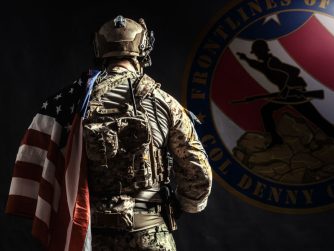I got this from one of my West Point classmates. It’s very insightful.
Understanding Afghanistan
In 1976 I went to Abu Dhabi in the UAE to set up and run a small construction company. I had a local Arab (a Bedouin) partner, as was required by law. At that time I was the only private American businessman in Abu Dhabi, which made me somewhat of a distinction among the many Brits, Germans, French and Lebanese who had also flocked there to take advantage of the world’s first oil boom.
As a private businessman, I also had a unique perspective on things. I had no protection net if things went wrong. But the overall spirit of the place was upbeat with incredible business opportunities and construction opportunities everywhere you turned.
I ended up building three 10 story apartment buildings, each on a separate building site.
The 110 workers were Afghanis from Afghanistan (Baluchi’s, actually). They were the only people who could work in the summer heat that sometimes reached 130 degrees. They were a very tribal people. They came to Abu Dhabi in tribal groups, and they stayed together, no matter what. So if you wanted them as a work crew, you had to hire the whole bunch. Their leader was usually the senior tribesman, and had total authority over them.
Since I had three jobsites, I had men from three different Afghan villages, each keeping to itself. I was quickly advised that I could not transfer workers from one jobsite to another, because they would be killed by the men from the other village. This confused me at first, but I quickly learned the rules.
The Afghanis were great people. They were incredibly hard workers, always smiled, and seemed to like me. I was always fair with them, which was not the case on many other jobsites.
As we got to know each other, I would have conversations with groups of them. We would sit cross-legged in a circle. Sometimes we sipped glasses of hot tea. The language was translated from Farsi to Arabic and then to English, so visiting took a while. They liked working for an American, and they seemed anxious for me to understand them. They constantly emphasized the following:
1. They were very proud that they were the only country that the British Empire could not conquer. They always beamed with pride when they told me this.
2. They were a warlike people. The greatest aspiration any young man could have was to die bravely in battle.
3. They emphasized that death did not frighten them, on the contrary they welcomed it, as long as they were fighting bravely.
4. Because Afghanistan had not been invaded for about a hundred years, the men of each village had taken to fighting with the neighboring villages. This explained the incredible hostility between the village groups and why I could not send workers off to other jobsites.
Anyway these interesting visits with the men impressed me greatly. It was very easy to like these simple, tribal people. Years later, when I read that Russia invaded Afghanistan, I smiled to myself, thinking, “This is going to make a lot of young Afghani warriors very happy. Now they have a true foreign invader to fight”. And we know how Russia fared.
Then, again, years later, I read that the US had entered Afghanistan, I was apoplexic. I could see in my mind’s eye the look of glee on the young men in a valley when they saw the first American Army convoy rolling into their valley. As I told my friends, probably the only people tougher to conquer than the Vietnamese are the people of Afghanistan. Big mistake for our country. These people cannot be defeated.
So when I read about Taliban, or Al Qaeda in Afghanistan, I laugh to myself. We do not even know why they fight us. They fight us because it is their culture to do so. We provide them a chance to die bravely in battle.
I feel very sorry for the troops that get sent to Afghanistan. They do not even know what motivates the people that fight them. Very tragic.
This article was written by Michael D. Miller, a 1964 graduate of the US Military Academy at West Point. He is a Vietnam Veteran.



